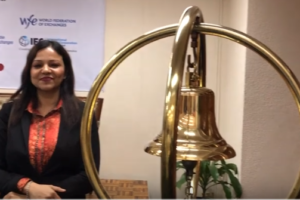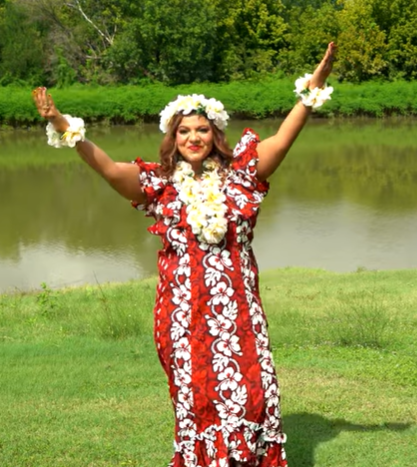Hurricane Dorian slammed into the Bahamas on Sunday, the strongest storm on record to hit the northwestern part of the archipelago, leaving residents seeking shelter as they faced rising waters, torrential rains and wind gusts up to 220 mph.
The storm strengthened to a Category 5 on Sunday before it made landfall. Forecasters at the National Hurricane Centre called it “catastrophic” and warned that its “extreme winds and storm surge will continue for several hours.”
This is a region that prides itself on withstanding powerful storms, and the Bahamas has revamped its building codes and stepped up enforcement to prepare for disasters such as this one. But the combination of Dorian’s slow pace, furious wind speeds and heavy rainfall with the low-lying islands’ vulnerability to flooding could be lethal.
Prime Minister Hubert Minnis, who had warned that 73,000 residents and 21,000 homes could be affected, urged residents of Grand Bahama Island on Sunday to move to safer ground in the main city of Freeport. On the Abaco Islands, parts of the main city of Marsh Harbour flooded.
“As a physician, I have been trained to withstand many things — but never anything like this,” Minnis said during a news conference. “This is a deadly storm and a monster storm.”
As it approached the Bahamas, the storm grew larger, with winds extending up to 45 miles from the centre. Its core was expected to move slowly — at 7 mph — over the Abaco Islands and toward Grand Bahama Island on Sunday, bringing with it a storm surge that would raise water levels as much as 18 to 23 feet above normal and deliver more than 2 feet of rainfall in some areas.
In some parts of Abaco, the prime minister said, “you cannot tell the difference as to the beginning of the street versus where the ocean begins.”
Reaching sustained wind speeds of 185 mph, Hurricane Dorian is tied for second place among hurricanes in the Atlantic basin with the highest wind speeds, according to Dennis Feltgen, a spokesman for the National Hurricane Centre in Miami. Records go back to 1951.
Residents hunkered down in schools, churches and other emergency shelters, but there was concern that some would try to brave the storm in their homes.
Minnis had ominous words for those who had not sought shelter.
“I hope this is not the last time they will hear my voice,” he said. “And may God be with them.”
On Abaco Island, where surging waters were gushing through the streets, he warned, “They are now in for the long haul.”
Shelters on Abaco are full, said Louby Georges, director of international affairs for Human Rights Bahamas. Many of Marsh Harbour’s poorer residents had sought refuge in churches, but those churches were not on the list of government shelters to receive food and water, so Georges was worried that they would run out of supplies.
“My guy at St Francis Church said there is no drinking water,” Georges said in a telephone interview from Nassau, the Bahamian capital. “There are no trained emergency personnel with them.”
Residents on Abaco Island were growing desperate as the storm bore down on them, he said.
“People are sending voice notes, people are crying,” he said. “You can hear people hollering in the background.”
Frankie Fleuridor, an activist who works with the Haitian community in Marsh Harbour, was worried that not everybody would be able to leave.
“It’s tough for people in the shantytowns,” he said, because their plywood houses are not built to withstand hurricane-force winds and are vulnerable to flooding.
He said that he had rented hotel rooms for the most vulnerable, but could not afford to do more.
“I’m maxed out,” he said.
Darren Henfield, the foreign minister and a member of Parliament from Abaco, said that residents of one of the vulnerable neighbourhoods in Marsh Harbour, called the Mudd, took advantage of a lull as the storm passed over to leave their damaged homes and seek safety in the main government building.
“We’re now set to ride out the rest of the storm,” he said in a broadcast carried by the Broadcasting Corp. of the Bahamas.
On Grand Bahama Island, residents watched with worry as friends sent videos of the destruction that Dorian inflicted as it crept over the Abaco Islands. Still unsure of exactly what route the storm would take once it reached Grand Bahama overnight, residents were preparing for the worst.
Everybody has really taken heed of the warnings,” said Sarah Kirkby, 49, who lives in Freeport, the main city on Grand Bahama Island. “Everybody has been so much more vigilant than they usually are.”
The residents of Grand Bahama learned their lesson the hard way, when Hurricane Matthew struck three years ago. Roofs blew off then and it took six weeks to restore power to the island.
Those who can afford to have equipped their houses with storm shutters, replaced their roofs with metal roofs and bought generators.
“If you stayed, you invested,” said Kirkby, who owns a public relations firm. “It makes you stronger, but it makes you want to stay here and protect the place you love.”
On Saturday, Michael Pintard, the Bahamian minister of agriculture, crisscrossed Grand Bahama Island on Saturday in a last-minute effort to help residents. He brought a team of workers to nail plywood on roofs, windows and doors.
Pintard said there was a shortage of both labour and plywood to prepare.
Thousands of people were at risk of losing their homes — which is their “life’s investment,” he said, adding that “catastrophic damage” would close businesses and eliminate jobs, “which we are ill prepared for.”
Tourism is a mainstay of the Bahamian economy, but the region in the direct path of the storm is not the centre of the industry. Many hotels on Grand Bahama and the Abaco Islands were already closed for the low season.
Among those open was Abaco Beach Resort in Marsh Harbour. Most tourists had left, but a few were planning to brave it along with the news crews, insurance executives, business travellers and some residents who had booked rooms.
“It’s emergency business, not business as usual,” said Rick Lohr, the hotel’s general manager. He said the hotel had a generator and ample food and water supplies, but he was cautious nonetheless.
“A lot of people have generators and plans for this because we’re very susceptible to storms, but this is a big one,” he said. “You never take them for granted.”
“It’s moving so slowly, you don’t know where it’s going to go,” he added. “It can create a lot of damage.”
The Bahamas Department of Meteorology said it expected the eye of the storm to pass over the Abaco Islands on Sunday afternoon and move over Grand Bahama overnight.
The Bahamas is as well prepared as it can be to face Hurricane Dorian, having updated its building codes in the early 2000s with some of the strictest standards in the region, said Aris Papadopoulos, an expert in hurricane resilience at Florida International University’s Extreme Events Institute.
“This is a very strong storm, very powerful and damaging,” he continued. “But I think the Bahamas, of all the Caribbean islands that I know, is probably in a better if not the best position that you could have.”
In 2003, Papadopoulos said, the Bahamian government revamped their building codes, adopting standards that matched, if not improved on, those codified by some governments in hurricane-prone South Florida.
The Bahamian regulations now require that buildings be constructed to withstand up to 180 mph winds, an extremely high resilience level, said Papadopoulos, founder of Resilience Action Fund, a nonprofit that promotes greater resilience to natural disasters in the built environment.
The Bahamians have also been building their first floors 12 feet above expected flood levels, he added, and the high standards have been accompanied by strong code enforcement.
“They take the topic of hazards very seriously,” he said.





















